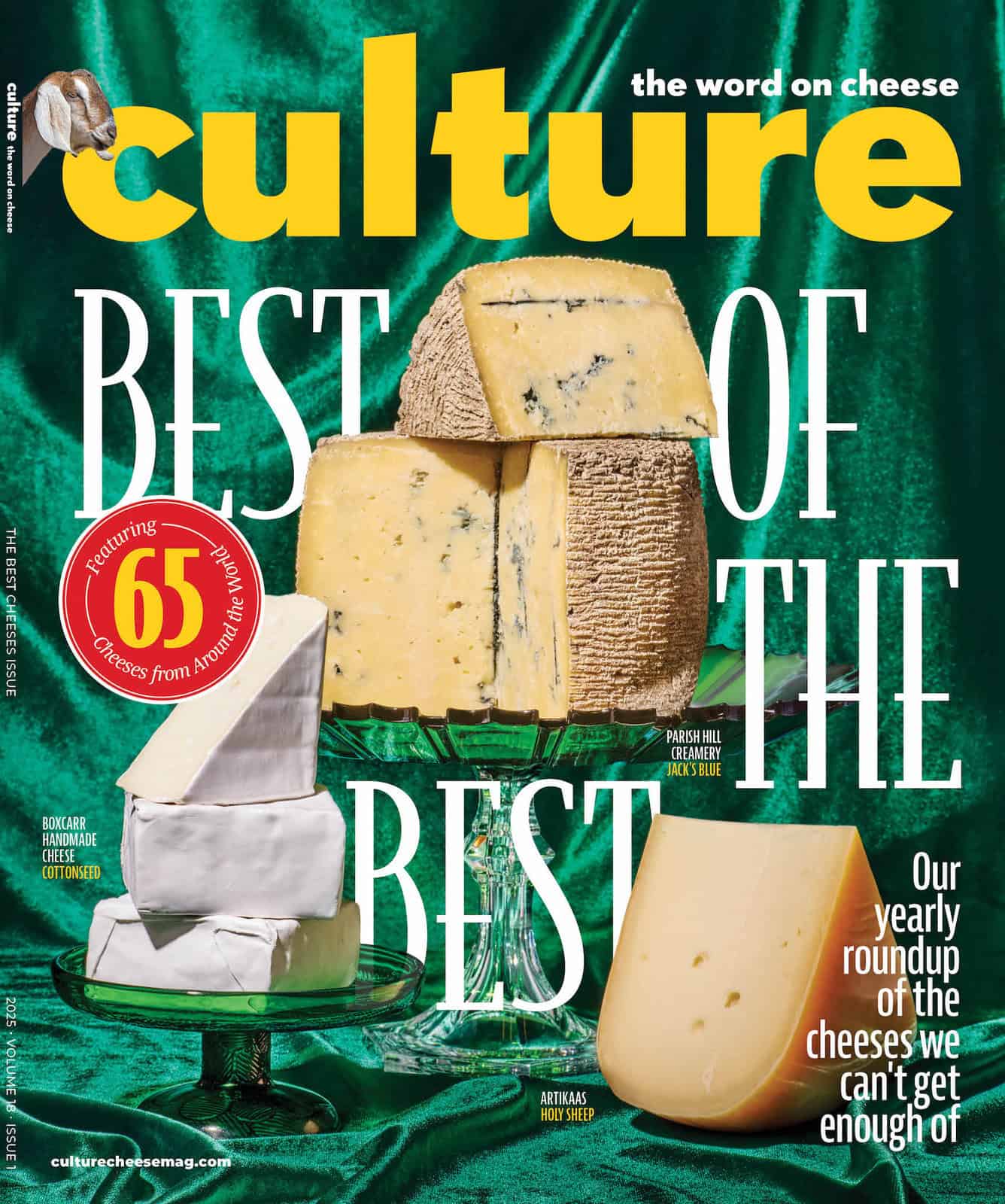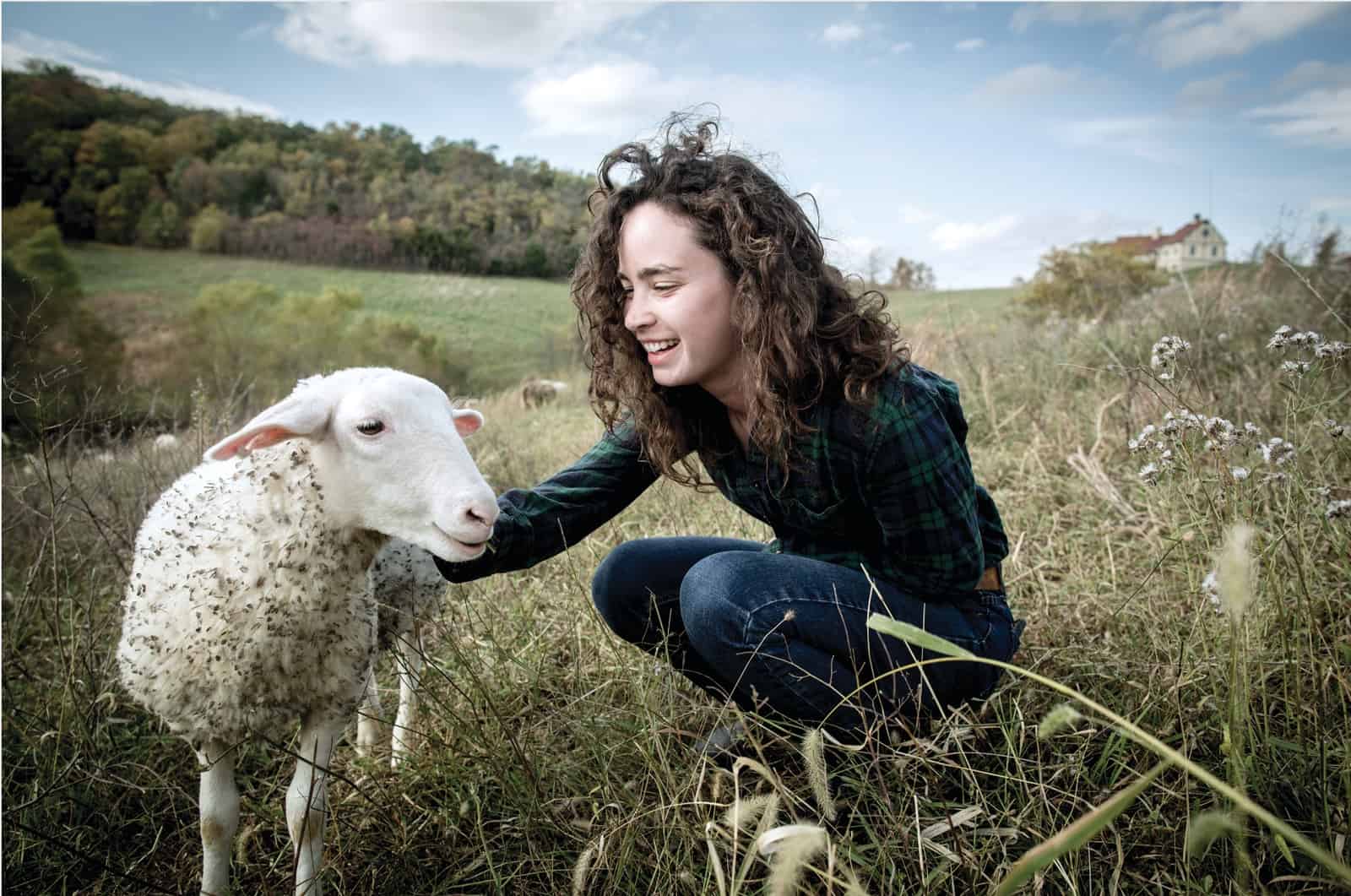
Eliza Spertus steps onto her front porch and the screen door slams behind her. It’s 6 a.m.; the sun is coming up over her shoulders as she gazes west to survey the pasture that lies beyond the dirt lane running perpendicular to her house. As she crosses the road, her eyes are fixed on the yellow and green expanse of native grasses that slopes away from her to meet the rolling bluffs of the Missouri countryside.
Her lips move quickly but silently as she counts: 48, 49, 50…Every member of Spertus’ flock is present and accounted for this morning, though that’s not always the case. There are some days when herding sheep on the 150-acre farm is more like herding cats. She often has trouble with a lamb named Houdini, whose knack for slipping through fencing defies logic—and it always seems to happen when it’s most inconvenient. The great escapist has been found roaming the neighbor’s yard after bedtime, or more memorably attempting to photobomb a wedding taking place on the farm grounds. Spertus has had to become adept at wrangling him back into the herd quietly and without disturbing others.
This is not the average workplace anecdote for a 27-year-old woman in America. While most of her friends are navigating the bureaucracies of office life or beginning their residencies, Spertus spends her days knee-deep in pastures, accompanied by a band of border collies, herding her flock of 150 sheep from paddock to milking parlor, erecting fences, and performing maintenance on farm equipment. She’s the farm manager at Green Dirt Farm, she’s a woman, and she’s a total badass.
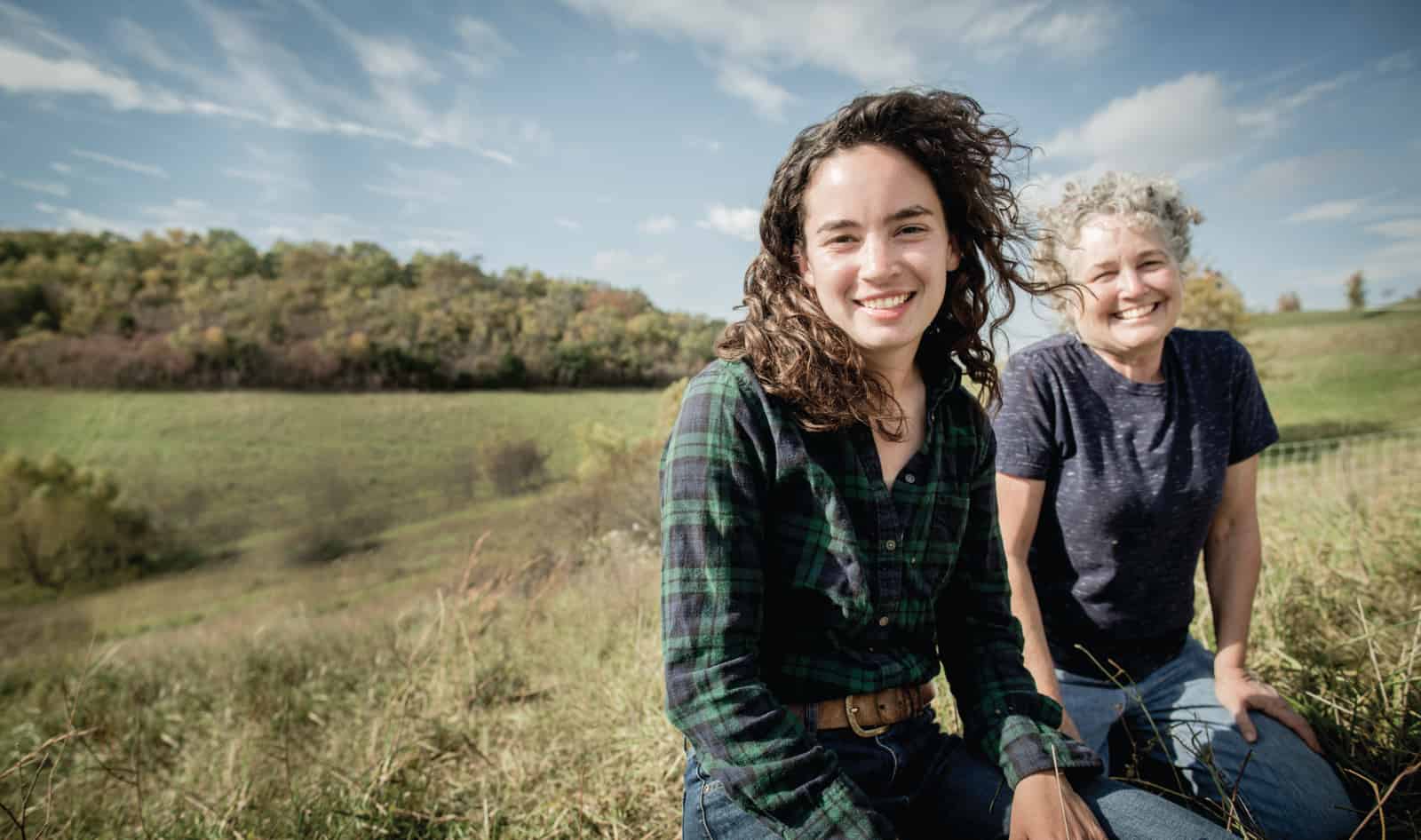
Eliza Spertus and Sarah Hoffman at Green Dirt Farm in Weston, Mo.
THE FARM
Green Dirt Farm in Weston, Mo., is a sheep dairy and creamery owned and operated by Sarah Hoffmann, who left a medical career in Seattle 22 years ago and landed here, 40 miles northwest of Kansas City, with her husband, John Spertus, and their children, Eliza, Jacob, and Daniel.
“I wanted to start a sustainable small business so my children would have the benefits, joys, and life lessons of growing up on a farm,” says Hoffmann. And as it turned out, she had just the skillset for cheesemaking. “My aunt owned a gourmet cheese shop when I was a teenager. She taught me to love great cheese. My undergraduate education was in chemistry, and my [medical] interest was microbiology. [Cheese] is my true calling.”
The way Hoffmann runs Green Dirt Farm is a testament to the adage that it’s the little things that make the big things happen; her attention to detail starts from the ground up. A high priority is placed on sustainability—Green Dirt Farm is Animal Welfare Approved, a designation that involves a rigorous process to prove they raise their animals humanely and operate with the environment in mind—and that means caring for the soil first and foremost, employing practices that prevent erosion and help build topsoil. Hoffmann believes that healthy soil grows delicious grass, which makes for happy and well-fed sheep, which in turn produce tasty milk for their cheeses.
The care and effort don’t go unnoticed; Green Dirt Farm consistently wins awards for their farmstead cheeses, and crowds of locals and tourists alike drive the gravel-laden back roads of Weston’s farmlands daily to stand in line at the on-site creamery for sandwiches and cheese boards.
“[Cheese] is my true calling.”
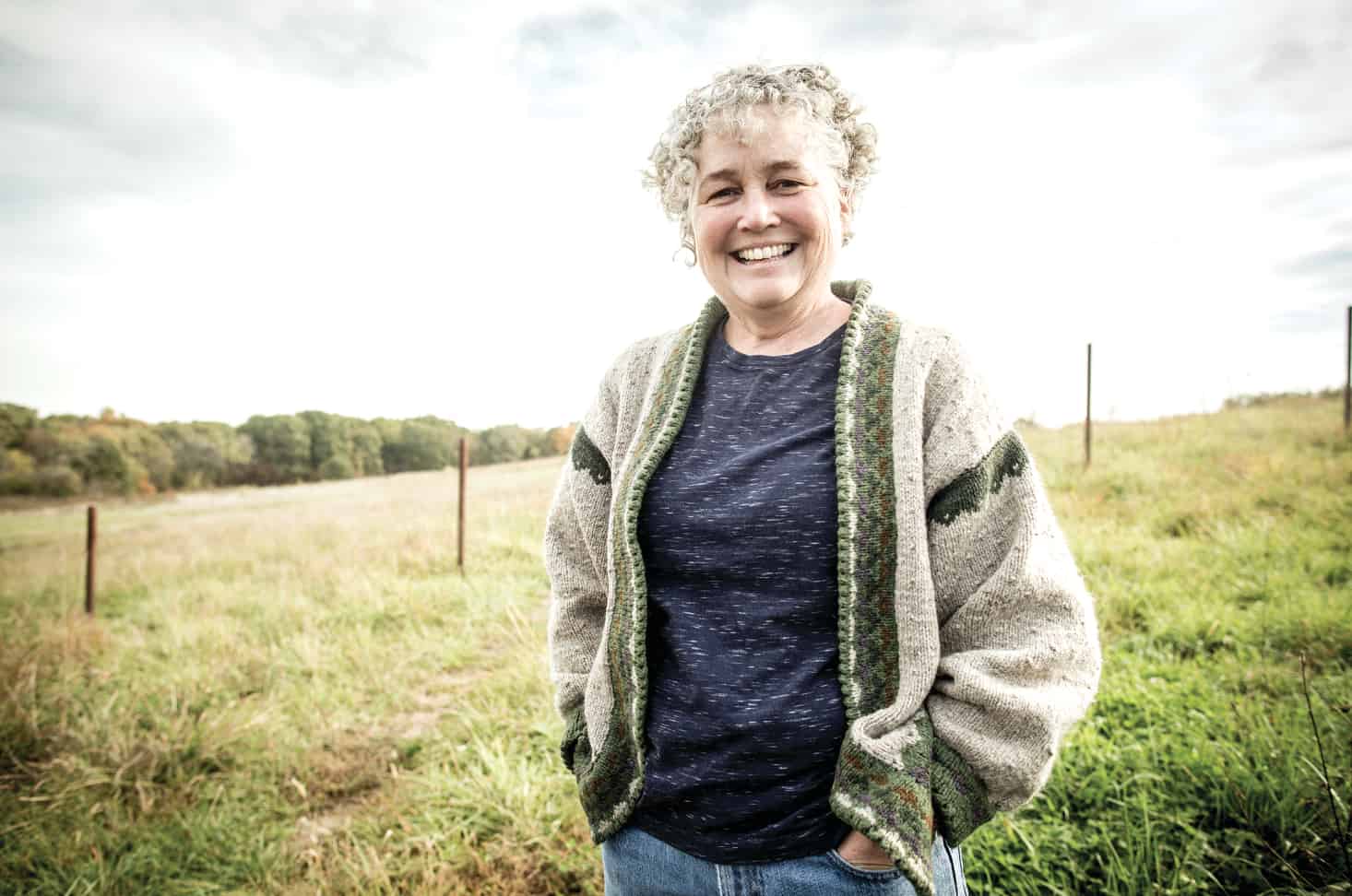
Farm owner Sarah Hoffmann.
THE WOMEN
On a warm autumn day, I’m one of those visitors, sitting in the sun-filled tasting room chowing down on one hell of a grilled cheese—stacked with Green Dirt Farm’s Bossa, Tuffet, and Prairie Tomme, as well as ham, pickled green tomatoes, and mayo…good Lord!—and chatting between bites with Spertus and Hoffmann. Spertus pulls her wild and curly hair—a longer version of her mother’s own wild and curly hair—into a ponytail and digs into a sandwich herself. Sitting across the table from them, it’s difficult not to inventory more of their similarities: their wind-chapped cheeks, their total presence when they’re with you, their smiling eyes.
The two women also share a passion for the farm life. “When you live on a farm, you’re in close proximity to life and death. The animals and plants you’re growing rely on your common sense and your ability to get things done,” says Hoffmann. “It builds confidence and teaches you to get over your failings and your inability to control what you can’t control. You learn how to respond to and recover from challenges in life. I was longing for that as an adult.”
Hoffmann was surprised when Spertus came to her three years ago and suggested that she be the one to fill an open farm manager position. “I didn’t know if I was trying to be helpful or actually making a career choice, but I knew it felt right,” says Spertus. “Since then, I’ve fallen in love with it. Working with sheep is a constant practice in controlling things about my personality. I try to give my animals the best life I can, and I have to accept that all things come to an end. There’s beauty in that, and it’s rewarding to experience year after year.”
It’s expected for a mother to be an influence on her children, but Hoffmann’s impact extends beyond her daughter’s career path to the nearly all-female team of farmers, cheesemakers, managers, and marketers that make Green Dirt Farm a successful operation.
“We’re [more than] 80 percent women,” says Hoffmann. “It’s not intentional, but there may be an unconscious bias involved. I gravitate toward people who are collaborative and who have empathy for others. I think women have those qualities more often than men do.”
“You take care of the problem. Then you take care of another problem. And another problem. And then one day it occurs to you that you know how to do this.”
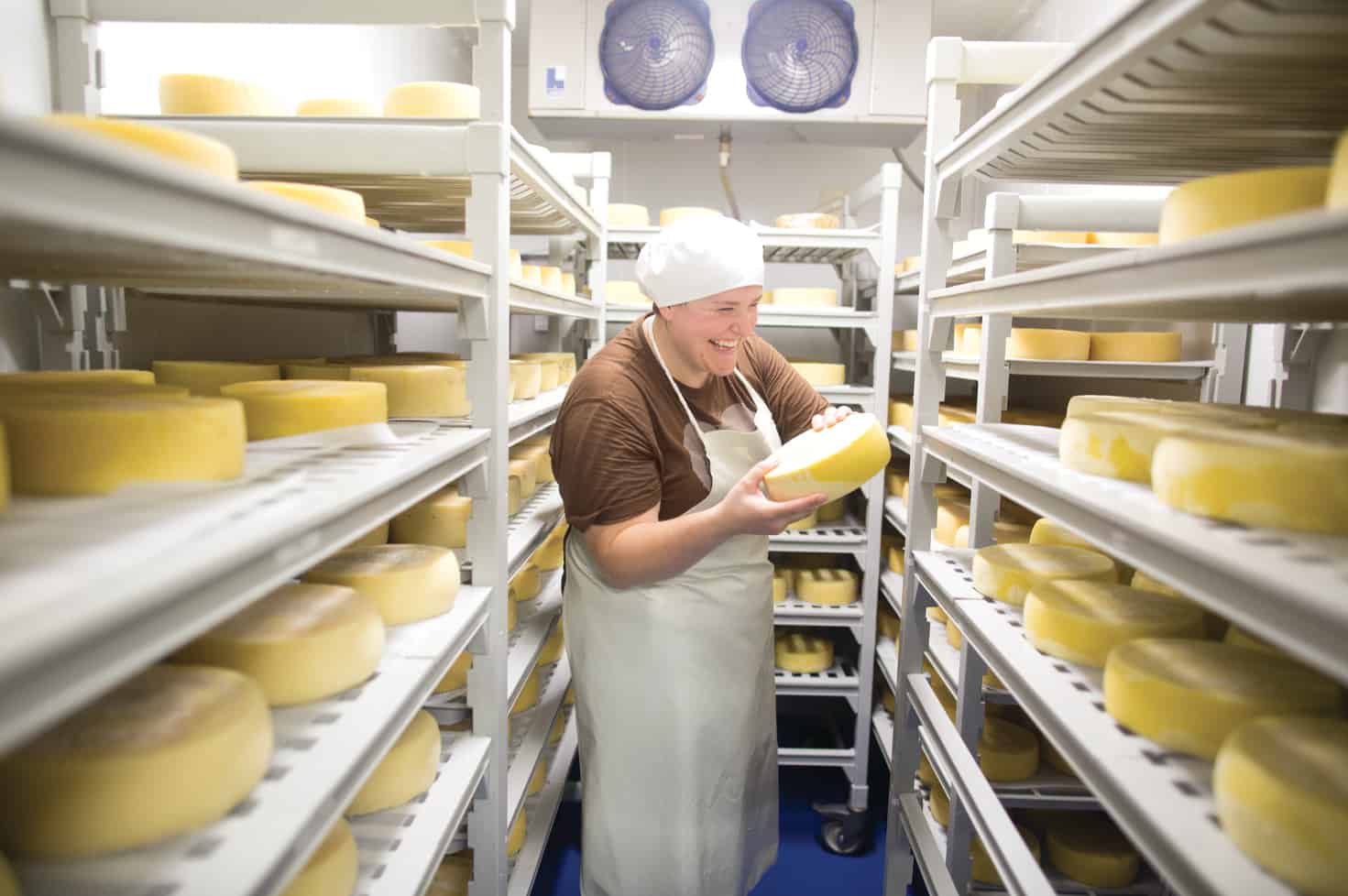
Rachel Kleine flips week-old wheels of Aux Arcs, which will age for 60 to 90 days.
Whether or not it’s by design, there’s no question that Hoffmann is teaching the women at Green Dirt Farm how to survive and thrive in the male-dominated farming industry. “There’s a lot of pride in being a woman doing this,” says Hoffmann. “There’s no doubt that there are times we wish for a big burly guy to come take care of a problem we’re having, but we don’t have that. We have to live by our wits when we get into a physical situation. We have to be smart and use our machinery to do something that a man might do faster.”
Hoffmann has seen her fair share of women who were intimidated by more than just the physical demands of farm life: Internal strength is also a requirement. “There are always problems. So you take care of the problem. Then you take care of another problem. And another problem. And then one day it occurs to you that you know how to do this. That’s what happens to the women who work here. Some come not feeling that they’re strong enough, but they quickly learn what they’re capable of.”
She shares the story of a young woman who interned on the farm a few years ago and found herself alone in a field with a fence to build. She had been struggling for hours, and the sun was beginning to set. All she had was a tangled ball of electric netting and a growing frustration with the project. She later told Hoffmann that she was on the verge of a breakdown when she realized that breaking down wouldn’t solve the problem. No one else was going to do this for her; it was up to her. She muscled through, and she built her first fence.
“My mother instills in us a sense of strength and independence, and that we can do what needs to be done,” says Spertus. “When challenges occur, she reminds us that we have it in us to find the solutions, instead of telling us how to do things. She gives us the freedom to do it in our own way, and that’s a gift.”
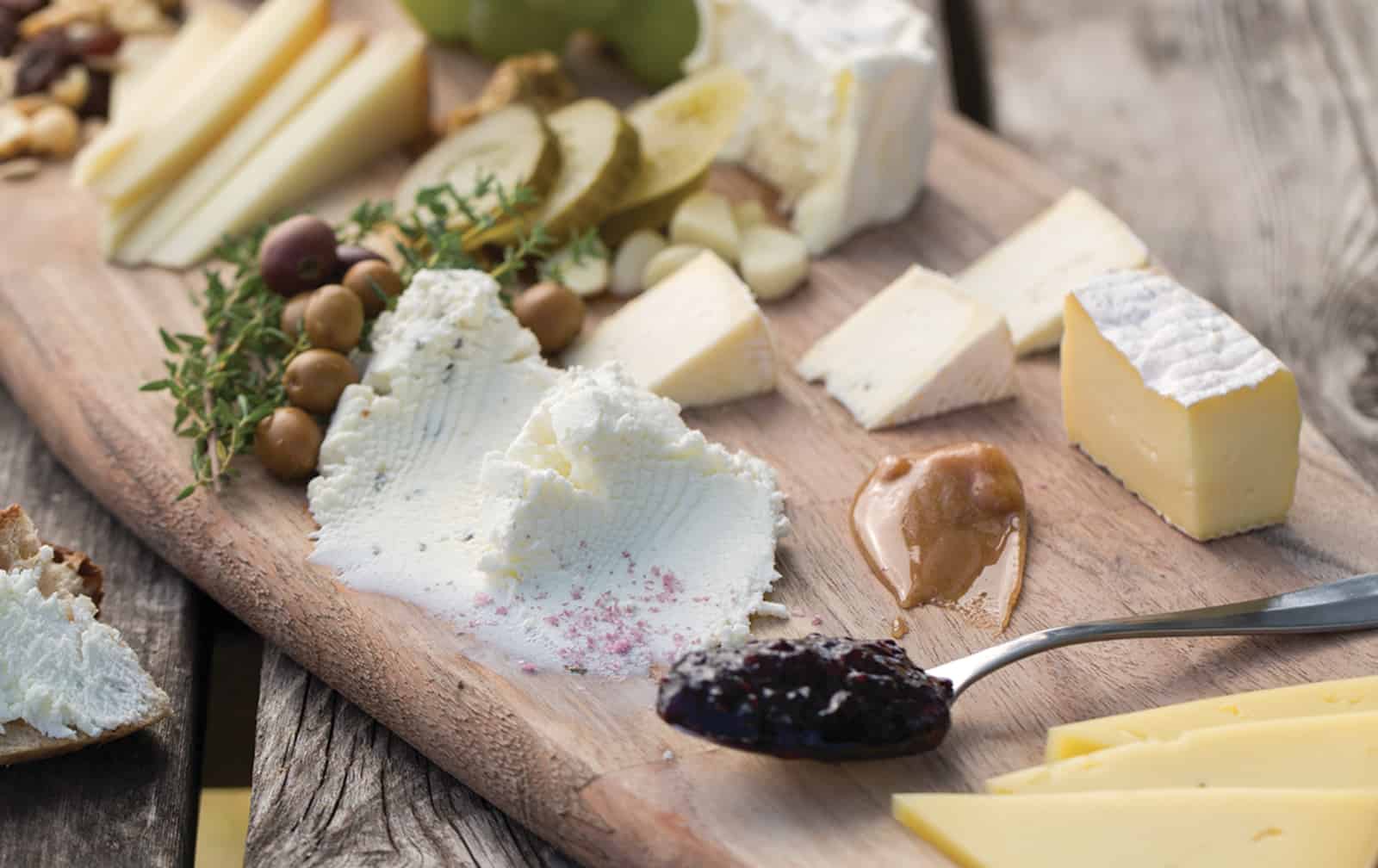
A board of Green Dirt cheeses.
THE CHEESE
Life on Green Dirt Farm isn’t all prancing sheep, grilled cheese lunches, and female empowerment. Making a dairy farm profitable is hard enough, but doing so with sheep presents additional challenges.
“Sheep milk is both easier and harder to make cheese with,” says Hoffmann. “Easier because it is more concentrated, and that means we get a higher yield, and the calcium in the milk makes the curd easier to work with. Harder because there are very few sheep’s milk cheesemaking experts in the U.S., so we had to do most of our learning by trial and error. Harder, too, from an economic perspective because of the very low milk production volume of American dairy sheep. That translates into higher costs to produce the cheese, and that means that the prices on our products have to be much higher than goat and cow’s milk cheeses, making it harder for us to sell the cheese.”
When Green Dirt Farm introduced its cheeses to the local community 10 years ago, Hoffmann knew the average Midwesterner was unfamiliar with sheep’s milk cheeses. “We had to educate, and then give them a lot of things to try in order to sell them on the idea,” she says. They experimented with Dutch styles such as gouda and English-style cheddars, but what they found sold best and inspired them most were French styles. Their first releases were spreadable fresh cheeses and a bloomy rind.
“It takes tenacity, but we just keep at it, and keep getting better.”
As Hoffmann shifted her focus to creating a long-term viable business with Green Dirt Farm, she needed to get out of the make room and into the CEO chair. Enter Rachel Kleine, a former chef who began as Hoffmann’s apprentice in 2012 and has since taken the reins as head cheesemaker. “Rachel has become a phenomenal cheesemaker, better than I ever was,” says Hoffmann.
Before even joining Green Dirt Farm, Kleine recognized it was a different environment than she was used to. “I loved that the business was female-owned,” she says. “[But] until I started working for Sarah and being mentored by her, I didn’t understand the importance of having a strong woman in leadership. Coming from male-dominated restaurant kitchens, I noticed the difference in communication style and a relaxed freedom to make mistakes. If we’re giving feedback, and trying to become better, there’s not a sense of competition. It comes from a nurturing place.”
Kleine pioneered the farm’s line of mixed-milk cheeses, which has created more diversity in offerings as well as a solution for when the sheep aren’t producing milk. She is also the brain behind Tuffet, a lactic-style, Geotrichum-rind cheese that’s a cult favorite among their customers.
“Tuffet was my R&D project under Sarah,” says Kleine. “It has a lot of challenges; it’s hard to dry properly, to get the rind to grow the way we want it to, and to ward off unwanted mold. I feel like we’re still perfecting and working on that recipe. Our flagship cheeses are consistent now, but our newer recipes we’re still experimenting with. It takes tenacity, but we just keep at it, and keep getting better.”
I think of Kleine’s words as I drive away from Green Dirt Farm, kicking up dust on the old dirt road, a box of cheeses filling my car with an enticing stink. The sun is going down and the lambs are grazing peacefully in their paddocks. I pass Spertus as she heads back into her house for a good night’s rest before she gets up and does it all again tomorrow. Keeping at it, trying to get better.
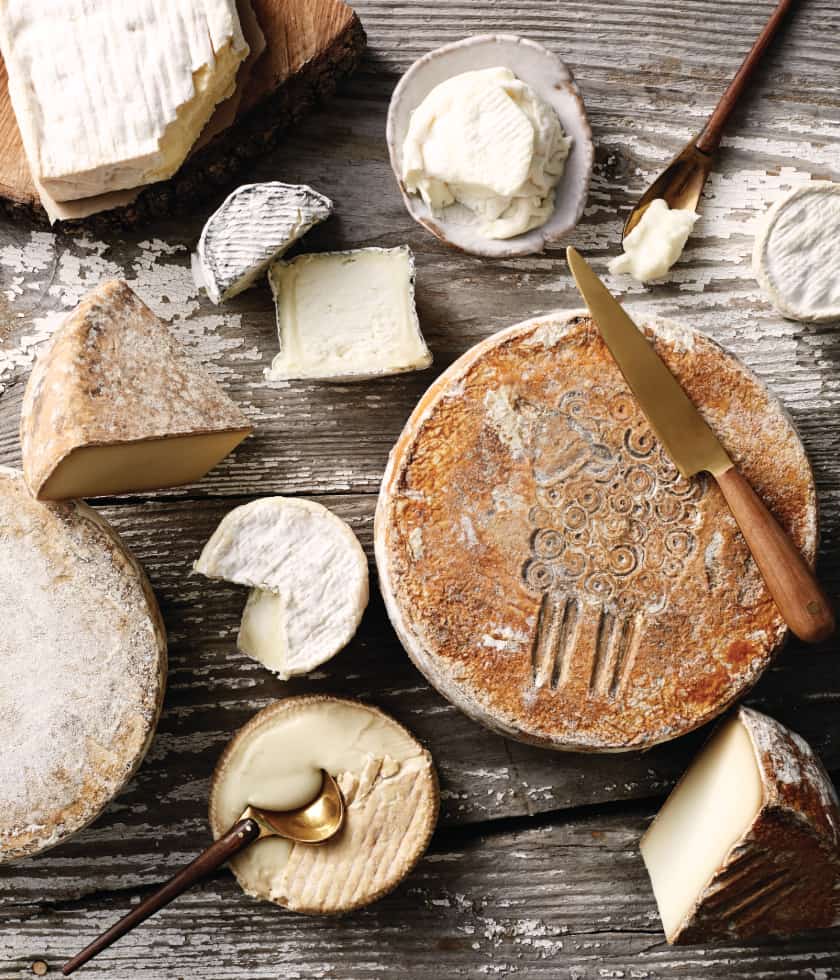
Green Dirt Farm cheeses, clockwise from top center: Tuffet, Wee Woolly, Prairie Tomme, Bossa, Woolly Rind, Aux Arcs, Dirt Lover, and Ruby.
Photography by Jennifer Silverberg


